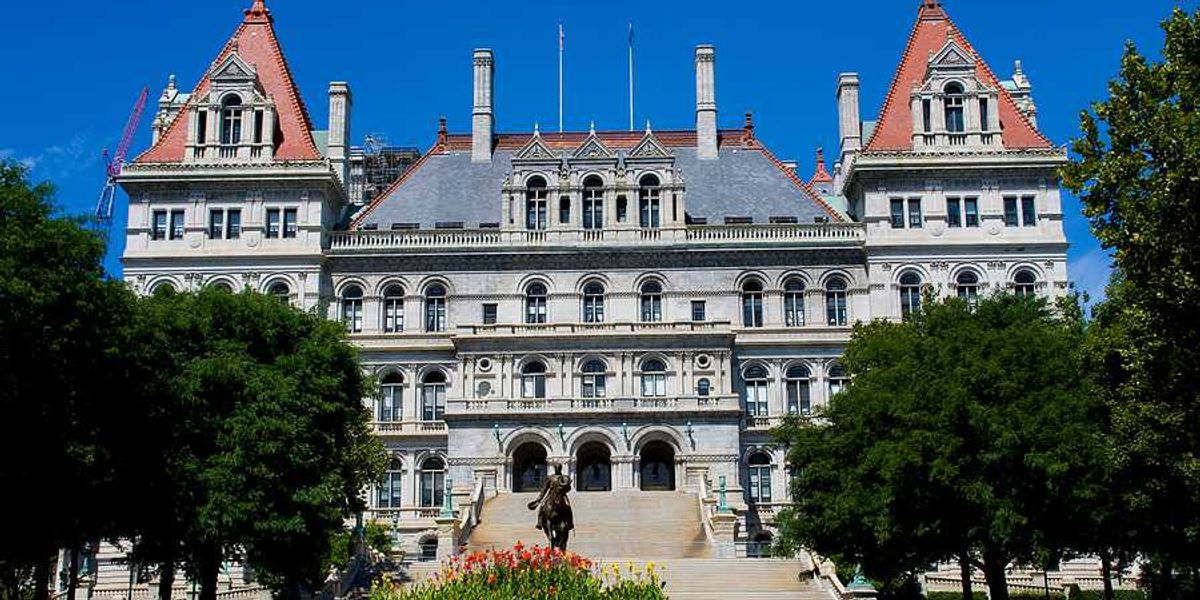heat waves
Federal heat policy ignores deadly risks despite increasing climate dangers
Extreme heat is killing more Americans than any other weather-related event, but federal policies remain focused on protecting people from cold.
In short:
- The federal government invests billions in heating but provides little support for cooling, leaving millions vulnerable to extreme heat.
- Federal programs fail to recognize extreme heat as a disaster, while thousands of people die indoors due to lack of air conditioning.
- Low-income and marginalized communities are disproportionately affected, unable to access tax credits or support for energy-efficient cooling systems.
Key quote:
“Access to air conditioning is a life-saving intervention during extreme heat. Lack of air conditioning (AC) was a key driver in mortality.”
— Multnomah County, Oregon investigation
Why this matters:
Disregard for the realities of a heating planet is deeply embedded in policy. Regulations don’t account for how much our climate has changed. Every summer, heat waves kill more people than hurricanes or floods, yet federal programs designed to protect the vulnerable still see cooling as optional. Read more: Ripe for disaster declarations — heat, wildfire smoke and death data.
Houston faces growing threats from hurricanes and heat waves, experts warn
As climate change drives more severe weather, Houston remains unprepared for the deadly combination of power outages and extreme heat following hurricanes.
By Niko Kommenda, Shannon Osaka and Simon Ducroquet report for The Washington Post.
In short:
- Tropical Storm Beryl left two-thirds of Houston homes without power, with some outages lasting over a week, compounding the heat-related risks.
- Experts predict future blackouts and heat waves will claim more lives as cities like Houston have aging power grids, vulnerable infrastructure and little preparation.
- Hospitals and critical services were overwhelmed as residents, especially those dependent on electricity for medical devices, struggled to survive.
Key quote:
“I think it’s an absolute certainty that we will have an extreme heat wave and an extended blackout in the United States.”
— Brian Stone, professor and director of the Urban Climate Lab at the Georgia Institute of Technology
Why this matters:
Houston’s vulnerability to hurricanes and heat waves is worsened by its aging infrastructure. As climate change intensifies, prolonged power outages during heat waves could turn deadly, with cities needing better preparation to protect their populations.
Related:
Food assistance programs are stepping up during heat waves
Amid rising temperatures, food banks and meal delivery services are playing a critical role in helping vulnerable populations stay safe, particularly older adults facing mobility and health challenges.
In short:
- Citymeals on Wheels delivers food to more than 20,000 homebound seniors in New York, providing essential support during heat waves.
- Volunteers not only bring meals but also check on recipients, helping prevent heat-related illnesses among socially isolated older adults.
- Food banks across the country, such as those in Los Angeles and Texas, are responding to increased demand as extreme heat exacerbates food insecurity.
Key quote:
“One of the things we talk about during heat events is checking on your neighbor.”
— Heidi Brown, professor and program director of epidemiology at the University of Arizona
Why this matters:
Extreme heat disproportionately affects older adults, unhoused people and families with children, heightening food insecurity and health risks. As climate change intensifies, the role of food assistance in protecting vulnerable communities will grow even more essential.
Heat waves and extreme weather highlight climate tipping points
Global temperatures hit unprecedented highs this week, raising alarms about the planet's future stability.
In short:
- Earth’s average temperature has exceeded 1.5°C above preindustrial levels since last July.
- Record-breaking temperatures led to deadly heat waves, wildfires typhoons worldwide.
- Scientists warn that these events indicate a weakening resilience of natural systems.
Key quote:
“The extreme events that we are now experiencing are indications of the weakening resilience of these systems. We cannot risk pushing this any further.”
— Johan Rockström, director of the Potsdam Institute for Climate Impact Research
Why this matters:
Rising temperatures and increased frequency of extreme weather events threaten global ecosystems and human health. Immediate action to reduce carbon emissions is critical to prevent crossing irreversible climate thresholds.
Related EHN coverage:
Disaster funds for heat waves and wildfire smoke face hurdles
As heat waves and wildfire smoke emergencies rise, states struggle to access federal aid due to unclear disaster definitions.
In short:
- Heat waves and wildfire smoke aren’t listed as “major disasters” under FEMA’s guidelines, complicating funding requests.
- States face difficulties in documenting costs and meeting FEMA's requirements for disaster declarations.
- A coalition of states and organizations is pushing for policy changes to recognize heat and smoke as major disasters.
Key quote:
“Our disaster framework is really geared toward protecting property and counting up damages to property.”
— Juanita Constible, senior climate and health advocate at the Natural Resources Defense Council
Why this matters:
Heat waves and wildfire smoke, exacerbated by climate change, cause significant health impacts and economic losses. Recognizing these events as major disasters could unlock essential federal aid for affected communities.
Related EHN coverage:
Deadly heat wave sweeps across the US, claiming lives
A severe heat wave has caused at least 28 deaths across the United States, with the toll expected to rise as high temperatures persist.
In short:
- The heat wave has primarily impacted California, Oregon, and Arizona, resulting in record-breaking temperatures and multiple fatalities.
- Most victims were elderly and found in their homes; other deaths include a motorcyclist in Death Valley and a baby in Arizona.
- Heat-related deaths are often underreported, as they are frequently attributed to other causes such as heart failure
Key quote:
“The extreme nature of the heat last summer and this summer has meant it’s in the forefront of everyone’s mind, including those in charge of classifying health outcomes and deaths."
— Ashley Ward, director of the Heat Policy Innovation Hub at Duke University
Why this matters:
As the climate crisis intensifies, the frequency and severity of heatwaves are expected to increase, posing a serious threat to public health and the environment. This brutal reminder of our changing climate heightens the pressure for action to mitigate the impacts of global warming. Read more: We are undercounting heat-related deaths in the US.
Heatwave blankets the globe, raising climate concerns
The Earth has experienced a continuous 12-month period of temperatures 1.5C above pre-industrial levels, according to new data.
In short:
- Between July 2023 and June 2024, global temperatures were the highest on record, 1.64C above pre-industrial times.
- Scientists warn of increased exposure to extreme weather and potential climate tipping points due to sustained high temperatures.
- Key climate metrics indicate a worsening trend unless greenhouse gas emissions are drastically reduced.
Key quote:
"This is inevitable unless we stop adding greenhouse gases into the atmosphere and the oceans."
— Carlo Buontempo, director of the Copernicus Climate Change Service
Why this matters:
Sustained high temperatures lead to severe weather events and threaten ecosystems, especially tropical coral reefs. Without significant emission reductions, global warming could exceed critical thresholds, exacerbating human and environmental harm.









